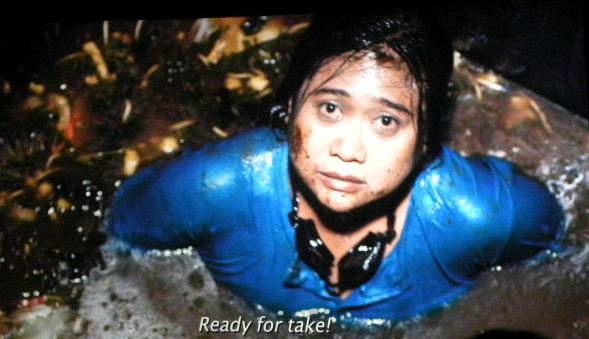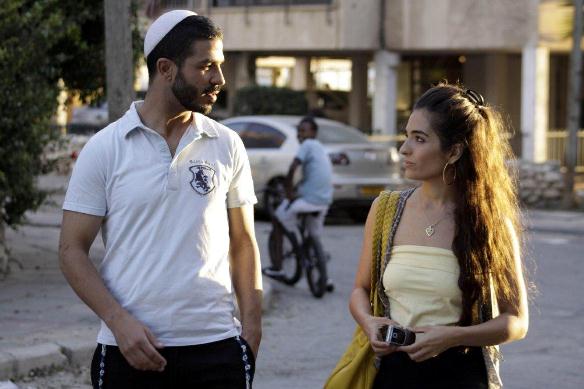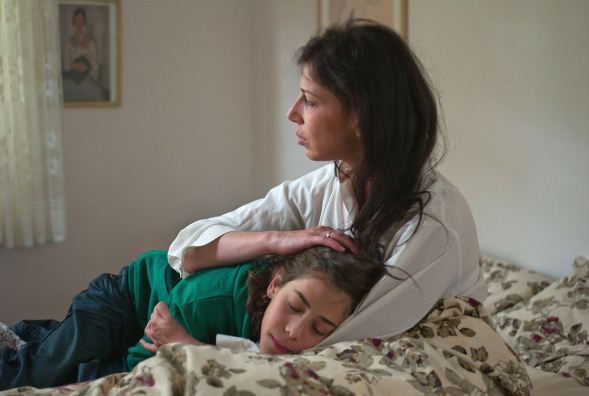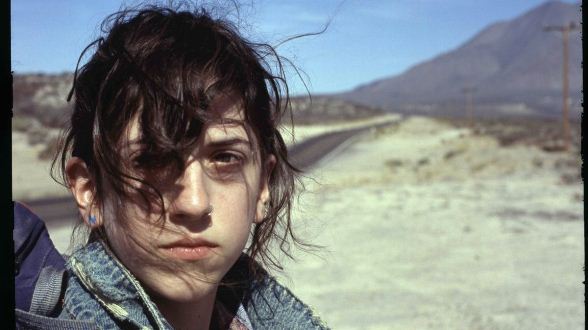Two people enter a room, one is a man, and the other is a woman. They perform the same action, together. When they leave the room, in the eyes of the community – friends, family, neighbors, strangers – one is applauded, the other is judged, one – the man – wins, and the other loses.
Sex remains an unsolved mystery, ever-intriguing and elusive, yet there are some things we – to the extent that there exists a cultural “we” – know: women who have a lot of sex partners are sluts and deserving of contempt and whatever other consequences their promiscuous behavior invites. Procreation aside, the discourse of sex is all too often about power rather than pleasure, and pleasure, when it can be found, appears to be the prerogative of the male. Cinema, that great generator of images, is often comfortably complicit in perpetuating this collective knowledge, rarely venturing beyond the poster image.
Always an attention-grabber, sex was on my mind from the start as I entered the marathon of the 2012 Jerusalem Film Festival, influenced perhaps by the choice of opening film, Woody Allen’s To Rome With Love. Love is much too complicated and therefore beyond the scope of this blog, but I do have a few things to say about sex, women and the silver screen.

Few of us can claim immunity from cultural influences, I confess: the first time does have a certain mystique, and I was very curious to see films by first-time directors. The first of these was The Woman in the Septic Tank (Phillipines 2011, Ang Babae Sa Septic Tank – Tagalog), directed by Marlon N. Rivera. This entertaining film takes a playful jab at the film industry and cultural preconceptions, following aspiring young filmmakers Jocelyn, Rainier, and Bingbong (Cai Cortez, Kean Cipriano and JM de Guzman) as set out to make their fame and fortune in film by exploiting images of poverty in the Philippines.
Sex and poverty make fine bedfellows onscreen, and their sure-to-win screenplay features a single mother of seven who sells her daughter to a pedophile in order to make ends meet. Yet mid-way through their screenwriting fantasies, this plot is rejected as too banal (after all, girls are sold into sexual slavery every day) and the three young filmmakers agree that it will be much more provocative (lucrative) to show the woman selling her son to a pedophile. Wait – did I say agree? Agree might be an overstatement, as Jocelyn, the female side to this filmmaking triangle is not given much of a say, and is ostentatiously ignored throughout the film. Yet she continues to smile radiantly and daydream, grateful to be included in any capacity. How far will a filmmaker go to titillate the audience? The final scene of this satire makes the answer abundantly clear, and just as clearly suggests where this attitude may lead.

Onscreen and off, it’s still very much a man’s world, and many stories are told from a man’s perspective. Yet both Israeli director Meni Yaesh’s God’s Neighbors (Israel 2012 98 min, Hebrew with English subtitles) and Sally El Hosaini’s My Brother the Devil (UK 2012, 111 min, English and Arabic) present vivid portrayals of women, even as they explore the respective male realms of a Jewish Torah study fellowship of friends and London gangs.
Avi (Roy Assaf) and his friends Kobi (Gal Friedman) and Yaniv (Itzik Golan) are the enthusiastic new followers of a Chassidic Rabbi, hanging on his every word and joke, who hang out playing backgammon outside the local Bat Yam kiosk, share a joint listening to Roy’s latest religious trance tracks and supervise the neighborhood’s religious observance with a mighty arm. Miri (Rotem Zussman Cohen) is the new girl in town, and while developments between lead female role and lead male role are to be expected, Yaesh gives Miri a strong voice and presence beyond the predictable. Avi and Miri each cross an invisible line as they reach out to one another, yet in this journey attempt to distinguish between the essence and the outer trappings of their world views. The film raises provocative questions relating to women and sexuality, as it appears to make the argument that revealing clothes are, in their own way, as oppressive as strict codes of modest dress. Yet, one need not agree or disagree with the mores represented in the film to appreciate a different look at relationships and sexuality, one that is not often seen onscreen, in which desire is mutually felt, acknowledge and discussed, yet not expressed physically.

The Hackney neighborhood of London where Mo/Mohamed (Fady Elsayed) and his cool older brother Rashid (James Floyd) hang is worlds away from Bat Yam, yet if one looks beyond the labels, the underlying theme remains the same: the struggle to survive. Brute force seems to be the method of choice in both these worlds, whether it’s the DMG (Drugs, Money, Guns) against Demon in Hackney or religious Jews in Bat Yam protecting their turf from Arabs and Russians. Although the young gang members would like to view “their” women as accessories, to be used, abused or discarded as needed, the women in the film have something else to say. El Hosaini depicts individuals, not saints or stereotypes and there are several interesting minor female characters in this compelling and sensitive story of brothers. Here too, the “new girl in town” caught my attention – Aisha (Letitia Wright), an observant Muslim whose traditional head covering is in no way an obstacle to independent thinking. Aisha is the kind of friend any guy would be lucky to find – never swerving from her religious principles, she is open and accepting of Mo’s alternate path, yet honest and brave enough to let him know when he’s crossed the line between “different” and “wrong.” Yes, she may be a goody-goody, but there is nothing dull about this girl – she is into her music, into the moment, and she shines.

In contrast, Alice (Ilanit Ben Yaakov), the protagonist of Dana Goldberg’s debut feature Alice (Israel 2012, 82 min, Hebrew with English subtitles), is the epitome of dull, and that is what makes her so very interesting. Alice rides the bus to her job as night staff at a rehabilitation center for adolescent girls, prim and proper in her brown plaid skirt and button-down shirt, hair pulled back, an image of restraint. Married and the mother of a young son, Alice’s plain face and affectless demeanor conceal an inner life that one can only begin to comprehend. Goldberg presents the different facets of Alice’s life without providing commentary or explanations – her interactions with the girls in the center, following the letter, if not the spirit of her task; her less than honest interactions with her supervisors; conversations with her husband that seem to take place across an abyss; the disturbing relationship with her son, whose every affectionate gesture she seems to spurn; and the passionate steamy sex she shares with hot guy Yoel at work. Whatever one may think of Alice as a character, and there are no easy conclusions in this film, the scene in which she and Yoel make love in the office is powerful in its portrayal of sex from the perspective of a woman’s pleasure.

Returning to the room of the opening paragraph, it belongs to María (Lucía Uribe). Not quite yet a woman, yet she is already known as the neighborhood slut in Gabriel Marino’s A Secret World (Mexico, 2011, 87 minutes, Spanish with English subtitles). All a guy has to do is show up. Pleasure does not seem to have a place in her world. She has internalized society’s censure, and her self-esteem appears to be non-existent. Eerily passive, María seems to just let life happen to her while she watches silently and writes in her notebook. The notebook with its edgy clever drawings, biting self-critical commentary and dreams reveals María’s secret world to the viewer. Her persistence in writing, despite everything else that happens in her life, is a clue to her strength. It would have been easy for Marino to take the reassuring familiar route and let her find love and fulfillment in the arms of a caring man, but in his generosity of vision, Marino allows her to enjoy these pleasures, yet look beyond them as well. Early in the film, María writes in her notebook: “I hope someday someone will notice you and realize how amazing you are” – and we do.






[…] and film director Dana Goldberg is no stranger to passion – in her debut feature film Alice, she explored the life of a woman who is remote and disconnected from the people in her life […]
[…] Read Ayelet Dekel’s article on MidnightEast Ilanit Ben Yaakov & Neta Bar Refael, “Alice”, 2012. Photographer: Amit Berlowitz […]
[…] Read Ayelet Dekel’s article on MidnightEast Ilanit Ben Yaakov & Neta Bar Refael, “Alice”, 2012. Photographer: Amit Berlowitz […]
Comments are closed.